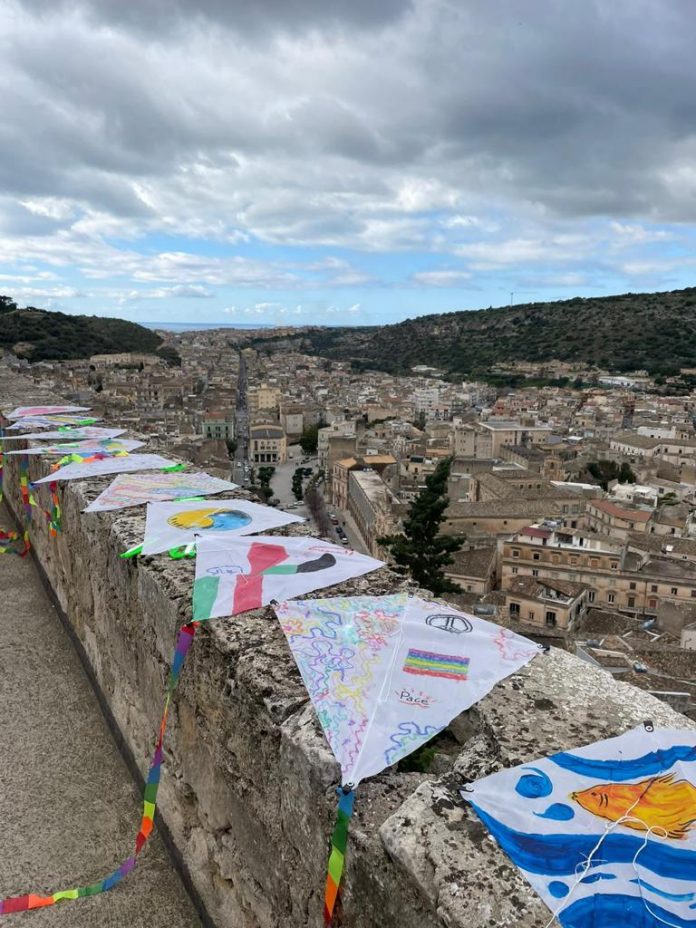Twenty-seven young men, all currently hosted at FCEI’s reception centre in Scicli, took part in the workshops with the aim of “expressing themselves through art”, explain the Crooks. Some of the pieces created by the migrants will, amongst other things, be featured in an exhibition called “Hear My Voice”, which will take place in Rome in March and will travel to other cities and churches throughout Europe. The project will comprise four aspects: creation of a video, the collection of pieces by migrants and refugees, a series of kites, and an installation on the theme of labour exploitation.
The impact of art on those who arrived from Libya has been very strong.. “Some of them had never experienced art, nor made a drawing. We encouraged them to build kites and taught them diverse techniques such as fluid art and using a drinking straw to paint, all aimed at enabling them to feel free”. Art was therefore used as a tool “for enjoyment and distraction, and a starting point for drawing out feelings”. The lab took place across seven workshops involving group work as well as individual work and at which staff and volunteers in Scicli were directly involved. In January, Karen and Bill Crooks also orgnised two sesskokn with children and a workshop in Camini, the municipality where welcome is a reality and where Mediterranean Hope is undertaking community projectrs in collaboration with SOS Rosarno.
“The thing which struck us most,” conclude the two English volunteers, “is the capacity of those who participated in the lab not to be overwhelmed by the traumas they have personally undergone and to manage to feel free, free to play. It was a joy to see them taking this chance and bouncing back.”
“Bill and Karen,” added Giovanna Scifo, who manages the Casa delle culture in Scicli, “gave us real gift, which made all of us remember that we are people who encounter each other. From our encounters grow marvellous ideas, shared and made together. People who can understand one another although we do not speak the same language, who can play and laugh despite suffering, hardship and unable to understand what is happening around them. At times, notwithstanding these apparent limitations, a spark shoots out and then the people we host feel like artists, focused only on their work. Through art, they were able to articulate all that they were able to draw out in a truly freeing gesture and, in the end, we saw them smile, wearing expressions very different from those very troubled faces which we saw immediately after their arrival in Scicli. So, thank you, to Bill and Karen for having given us this lab which has reminded us of the humanity which unites us all”.



























